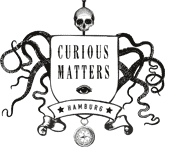8. 7.-1. 10. 2017, Exhibition Singular / Plural. Collaborations in the Post-Pop-Polit-Arena, Kunsthalle Düsseldorf
Venue: Kunsthalle Düsseldorf
Opening: 7. Juli 2017
An exhibition for the 50th anniversary of Kunsthalle Düsseldorf am Grabbeplatz
The focus at this exhibition is on artists who lived in Düsseldorf and worked together during the 1970s: Klaus vom Bruch, Michael Deistler, Bruno Demattio, Achim Duchow, Astrid Heibach, Candida Höfer, Christof Kohlhöfer, Ingrid Kohlhöfer, Klaus Mettig, Lutz Mommartz, Tony Morgan, Angelika Oehms, Sigmar Polke, Ulrike Rosenbach, Stephan Runge, Conrad Schnitzler, Emil Schult, Memphis Schulze, Katharina Sieverding, Ilona & Wolfgang Weber. With these protagonists, we take a fresh look at how the arts began to set out along more differentiated paths in the post-war years, and at sproutings of subculture in German-speaking countries and around Europe; most of the works on display in Singular / Plural have never before been shown at an exhibition. A pivotal factor is that this loose-knit group of cosmopolitans developed their predilections and strategies as they responded to and distanced themselves from vestiges of German fascism. They were interested in post-painting painting, in music, photography, slide projections, film and intermedia, performances, everyday life, the rites of the Rhineland, comics, pop culture, rockabilly, hippies and rockers, punk and new wave. We have defined this constellation as the post-pop-polit arena. It is about attitudes to politics and about reordering the myths of what is popular, about appropriating, repeating, sampling, reinterpreting, copying and faking visual material outside the mainstream. Apart from seeking to escape the Cold War order while caught within the narrow confines of the West, and before the art system went global, the artists exhibited here raised important questions about the function of images in the emerging fun-driven information society.
Singular / Plural is a themed group show structured around issues like collaborations, colonial histories, music, comics, economies and gender. The works – and the documentary material, printed matter, vinyl and other related items – are not presented in chronological sequence, but follow the same labyrinthian patterns as the process-based collaborations and debates in which these artists engaged. The art demonstrates a sense of political mission and self-irony; it resonates with contemporary interests. Christof Kohlhöfer and Emil Schult drew psychedelic comic strips, Bruno Demattio and Stephan Runge probed into individual mythologies and counter-cultures, Memphis Schulze, Achim Duchow and Sigmar Polke pre-empted a street art craze by taking up the spray can. Lutz Mommartz and Astrid Heibach raised questions about former German colonies when such curiosity was still rare in German-speaking countries, and Michael Deistler travelled to Egypt in the footsteps of the Nazis’ military campaign in Africa. Meanwhile, Candida Höfer cast an ethnographic eye over society back home, and Ingrid Kohlhöfer interrogated clichéd views of freaks.Tony Morgan, Ulrike Rosenbach and Katharina Sieverding explored gender-critical perspectives and rock poses in pop culture, and Conrad Schnitzler transformed the Pop Art heritage with new forms of electronic music. Many of the multimedia works have been reconstructed for this exhibition, making them accessible again for the first time. Achim Duchow, for example, composed sound for slide projections that addressed the role of the Red Army Faction, the gutter press and the art market during the “red decade”. Key to the curatorial concept is that group members experimented with unorthodox lifestyles and at the same time suspended singular authorship. Like Klaus vom Bruch, Ilona and Wolfgang Weber produced portraits of the Düsseldorfer Gruppe in the form of slide shows and collections of photographs, whereas others swapped their material or, like Sigmar Polke with Memphis Schulze or Achim Duchow with Angelika Oehms, created joint works. As philosopher Jean-Luc Nancy phrased it, “being-with” – or, in other words, being a “singular plural” – always assumes engaging in exchange with others, and that begs the question: how can groups evolving within specific art projects function as a plurality without the “we” lapsing into a totality.
Within the Düsseldorf milieu, these processes of exchange, transformation and discussion were maintained within public fora; the Kunsthalle operated as a central stage for their activities. The artists on show in Singular / Plural played an active part in setting the historical agenda for this institution with, for example, the alternative cycles between and Prospekt, while the major exhibitions were usually reserved for the pre- war generation. The presentation of this anniversary show therefore makes crucial references to three historical exhibitions: Yes Sir, That’s My Baby, which was part of the between cycle in 1973, the Sigmar Polke retrospective Bilder, Tücher, Objekte in 1976, which was actually a group exhibition in the form of a total installation, and Nachbarschaft, also held in 1976.
The artists
Klaus vom Bruch, Michael Deistler, Bruno Demattio, Achim Duchow, Astrid Heibach, Candida Höfer, Christof Kohlhöfer, Ingrid Kohlhöfer, Klaus Mettig, Lutz Mommartz, Tony Morgan, Angelika Oehms, Sigmar Polke, Ulrike Rosenbach, Stephan Runge, Conrad Schnitzler, Emil Schult, Memphis Schulze, Katharina Sieverding, Ilona & Wolfgang Weber.
Curated by Petra Lange-Berndt, Dietmar Rübel, Max Schulze and Gregor Jansen
The exhibition is supported by Ministerium für Familie, Kinder, Jugend, Kultur und Sport des Landes Nordrhein-Westfalen; Kunsthalle Düsseldorf is generally supported by Landeshauptstadt Düsseldorf, Stadtwerke Düsseldorf and Hans Böckler Stiftung.
Image: Memphis Schulze et al, Wedding Picture, 1977. Gouache, enamel, and acrylic on paper mounted on canvas, 230 x 280 cm. © Estate Memphis Schulze, Düsseldorf


 Deutsch
Deutsch